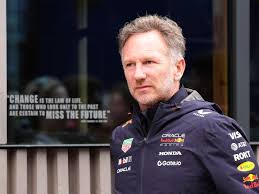
Introduction
Christian Horner has become a pivotal figure in the world of Formula 1 racing, serving as the team principal of Red Bull Racing since its inception in 2005. His leadership style and strategic decisions have not only shaped the fortunes of one of the sport’s leading teams but have also influenced how Formula 1 operates in an increasingly competitive landscape. Understanding Horner’s contributions provides valuable insights into the complexities of modern motorsport.
Achievements and Challenges
Under Horner’s guidance, Red Bull Racing has achieved remarkable success, clinching four consecutive Constructors’ Championships from 2010 to 2013, a feat that underscores his effectiveness in managing talent and resources. The team has also secured multiple Drivers’ Championships, with notable drivers like Sebastian Vettel and more recently, Max Verstappen, flourishing under his leadership.
Despite the team’s past dominance, the journey has not been without its challenges. The recent emergence of rival teams such as Mercedes and Ferrari has tested Horner’s strategic acumen. In response, he has championed innovative approaches to car design and performance, adapting to changes in regulations and technological advancements. Notably, the partnership with Honda for engine supply has proven fruitful, reinstating Red Bull as a formidable contender on the grid.
Horner’s Leadership Style
Christian Horner’s leadership is characterized by a blend of charisma and tactical thinking. Known for his clear communication and ability to motivate his team, he focuses on fostering a collaborative environment that encourages creativity and ambition. His approach extends beyond the garage; he is active in media engagements, advocating for the sport while balancing the interests of the team and its sponsors.
Moreover, Horner has emphasized the importance of sustainability in racing, advocating for more environmentally friendly practices within the sport. His views reflect a growing consensus in Formula 1 to adapt to global concerns related to climate change, enhancing the sport’s image and appeal to a broader audience.
Conclusion
Christian Horner remains a significant figure in Formula 1, showcasing how effective leadership can propel a team to great heights while navigating the intricate challenges of the sport. As Red Bull Racing builds on its legacy and looks to the future, Horner’s ability to innovate and inspire will be crucial. His insights and strategies will likely influence not just Red Bull but the broader landscape of motorsport, making him a key player to watch in the coming seasons.



